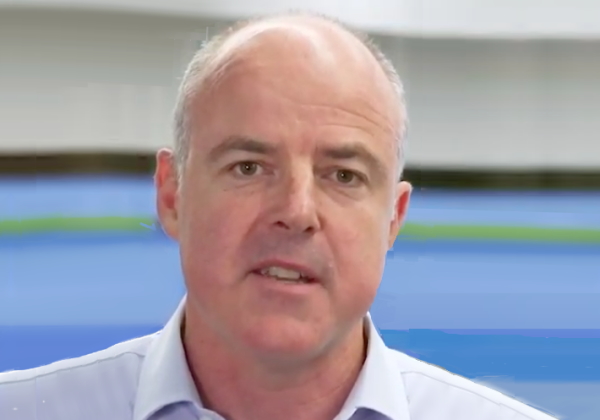
David Carter, CEO, RACQ
Customer-owned insurance and banking group RACQ has been put on notice by the prudential regulator to address deficiencies in its risk management systems after a regulatory review found the company had “an immature risk culture”.
APRA on Wednesday launched enforcement action against RACQ Insurance and RACQ Bank that will require both Brisbane-based entities to implement risk overhauls approved by the regulator.
“The Australian Prudential Regulation Authority will require RACQ Insurance Limited and RACQ Bank (collectively, RACQ) to develop and implement a comprehensive, APRA-approved, risk transformation program,” the prudential regulator said in a statement.
“This enforcement action comes after APRA identified significant weaknesses in RACQ’s risk governance during a prudential review undertaken this year.
“Areas of concern include RACQ’s risk and compliance framework and practices, capability and capacity challenges within the risk functions, unclear accountabilities and an immature risk culture.”
The prudential review of RACQ’s risk processes came after the Queensland mutual self-reported breaches relating to the incorrect wording of a pricing formula in its product disclosure statement for insurance products.
High-impact negotiation
masterclass
July 9 & 16, 2025
5:00pm - 8:30pm
This high-impact negotiation masterclass teaches practical strategies to help you succeed in challenging negotiations.
RACQ revealed in its annual report last month that it had booked a provision of more than A$200 million to remediate up to half a million customers affected by the misstatement of the pricing methodology.
“The total refund to members, across all matters, is estimated to be in the range of $200 - $220 million,” CEO David Carter told members in the annual report.
“This includes applicable duties, taxes and interest.
“The majority of refunds relate to the disclosure of optional covers in our insurance PDS and will date back to March 2015.
“Up to 500,000 members will receive refunds because our disclosures were incorrect.
“We will also issue refunds to those members who have not received the discounts they were entitled to, and those refunds may date back as far as 2013.”
The company has not yet disclosed the total cost of what it described in June as a “significant investment” to upgrade and transform risk management capability across the organisation.
An RACQ spokesperson said in an email response to a query from Banking Day that “we are making a significant investment in our risk transformation program which will be disclosed in RACQ’s FY23 Annual Report.”
According to disclosures in the latest financial accounts, the board cited matters relating to the pricing review as a contingent liability and notified members that the size of any further potential costs was “uncertain”.
“… a proactive review of RACQ’s pricing systems and processes is ongoing,” the board told members on page 72 of the financial accounts.
“The outcome of this review, and the quantum of any further potential costs over and above the member remediation provision recognised during the current financial year, are presently uncertain.”
In addition to the risk transformation program, APRA has also ordered RACQ to appoint an external expert to oversee the program’s implementation and report periodically to the regulator.
RACQ is also required to assign accountability for the program’s implementation to a senior executive under the Banking Executive Accountability Regime.
APRA deputy chair Helen Rowell said the regulator was disappointed with the deficiencies identified in RACQ’s risk governance.
“APRA will continue to work closely with insurers, banks and superannuation trustees to improve risk management practices and strengthen risk frameworks across the financial sector,” Rowell said.
“We will not hesitate to require action and highlight publicly, where appropriate, when entities do not meet these expectations.”
Carter said on Wednesday that development of the action plan for the transformation program was underway.
The risk overhaul is not expected to be completed until at least some time in the 2024 financial year.
The risk management crisis at RACQ occurred in difficult trading environment for the company, which was hit by a blowout in insurance claims during the 12 months to the end of June.
The group reported a comprehensive net loss of $251.5 million – a big shift from the $71.7 million profit recorded in 2021.
RACQ Bank contributed $2.0 million to the group profit, down from $10.8 million last year.